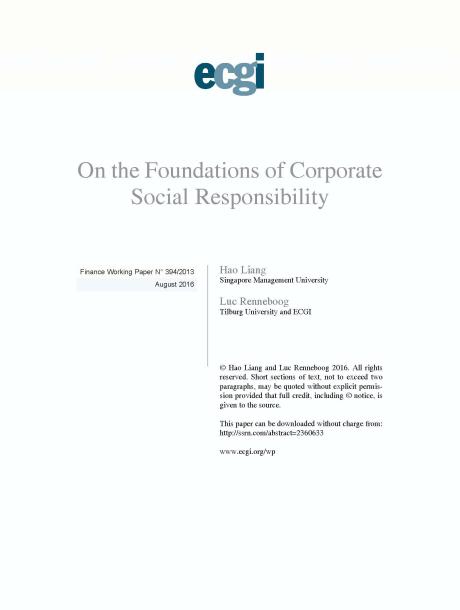
On the Foundations of Corporate Social Responsibility
Abstract
A firm's corporate social responsibility (CSR) practice and its country's legal origin are strongly correlated. This relation is valid for various CSR ratings coming from several large datasets that comprise more than 23,000 large companies from 114 countries. We find that CSR is more strongly and consistently related to legal origins than to "doing good by doing well"-factors, and most firm and country characteristics such as ownership concentration, political institutions, and degree of globalization. In particular, companies from common law countries have lower level of CSR than companies from civil law countries, and Scandinavian civil law firms assume highest level of CSR. This link between legal origins and CSR seems to be explained by differences in ex post shareholder litigation risk as well as in stakeholder regulations and state involvement in the economy. Evidence from quasi-natural experiments such as scandals and natural disasters suggest that civil law firms are more responsive to CSR shocks than common law firms, and such responsiveness is not likely driven by declining market shares following the shock.










